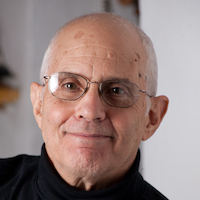A Big Day in the Life
June 1st marks the 45th anniversary of a decisive Baby Boomer moment: the release of the Beatles’ Sgt. Pepper’s Lonely Hearts Club Band album.
Sgt. Pepper was a musical landmark:
- >>The first big concept album.
- >>The first rock album to win the Album of the Year Grammy.
- >>The first liner notes with the lyrics to every song.
- >>The first album cover treated as a work of art.
- >>And so many technical innovations (like multitracking) that a recording engineer would have to describe them.
- >>Placing it at the top of its 500 Greatest Albums of All Time list, Rolling Stone called it “an unsurpassed adventure in concept, sound, songwriting, cover art and studio technology.”
The album was, in the vernacular of the time, a mind-blowing, far out, groovy 40-minute trip (in two-parts, since you had to turn the record over). But that’s not all it was. Its cultural impact was described this way by Rolling Stone:
Sgt. Pepper formally ushered in an unforgettable season of hope, upheaval and achievement: the late 1960s and, in particular, 1967’s Summer of Love. In its iridescent instrumentation, lyric fantasias and eye-popping packaging, Sgt. Pepper defined the opulent revolutionary optimism of psychedelia and instantly spread the gospel of love, acid, Eastern spirituality and electric guitars around the globe.
It was also a landmark in the history of Western spirituality, largely because it contains what I think of as the first rock ‘n’ roll Upanishad. “Within You Without You,” George Harrison’s only song on the album, was the first cut on side two, an appropriate placement for what amounted to a meditation break amidst the sonic extravagance, the bouncy novelty tunes, the poignant dramas, and the epic denouement of “A Day in the Life.” The song is a musical rarity, in that George is the only Beatle to play or sing on it; the other instrumentalists are Indian classical musicians, who elevate to new heights the East-West blend that began with a simple sitar riff on “Norwegian Wood” in 1965.
More importantly, the lyrics announce George’s entrance to the Hindu path he would follow—and represent—for the rest of his life.
The message is quintessentially yogic.
Lines such as “Try to realize it’s all within yourself” and “When you’ve seen beyond yourself—then you may find, peace of mind, is waiting there” landed on listeners’ ears as mahavakyas, the Sanskrit term for the great utterances of sages. The lyrics presage the spiritual revolution that the Fab Four were about to usher in.
The previous autumn, George had spent six weeks in India, studying sitar with the great virtuoso, Ravi Shankar, who was himself about to ascend (inadvertently) to rock star status. George was seeking spiritual truth as well as musical skills, and Shankar facilitated his quest by giving him books to read, among them Swami Vivekananda’s Raja Yoga and Paramahansa Yogananda’s seminal Autobiography of a Yogi. That’s why Yogananda and his guru lineage are among the luminaries depicted on the iconic Sgt. Pepper cover.
Come the summer of 1967, the Beatles, like millions of others in their generation, were ripe for the next step in their spiritual journeys. Right on schedule–two months after the Sgt. Pepper release—George’s wife, Patti Boyd, took them to hear Maharishi Mahesh Yogi speak in London. The Fab Four followed Maharishi to Wales and took up his Transcendental Meditation (TM). Like everything the Beatles did, updates on this momentous encounter were broadcast daily by the media.
Overnight, everyone knew what a guru was, and what a mantra was, and soon young people the world over started meditating. This marked a sharp turn from the druggy “I’d love to turn you on” refrain in “A Day in the Life” to an era of inner transformation through the safer, more sustainable methods in the yogic inventory.
Because TM worked, lives were changed.
Because lives were changed, research was done.
Because the research findings were impressive, doctors and psychotherapists started recommending meditation.
Within a few years, Eastern philosophy and its repertoire of mind-body practices would enter the mainstream. Spirituality in America would never be the same.
In his one song on Sgt. Pepper, George told listeners that “the time will come when you see we’re all one.” That forecast has come true for many. Not enough, of course, but the perception of our essential oneness is more universal now than it was on that eventful day in the life, June 1, 1967. Meanwhile, as ever, life flows on within you and without you.
~ Like elephant yoga and elephant culture on facebook. ~
~
Editor: :Lynn Hasselberger
 Share on bsky
Share on bsky

Read 1 comment and reply